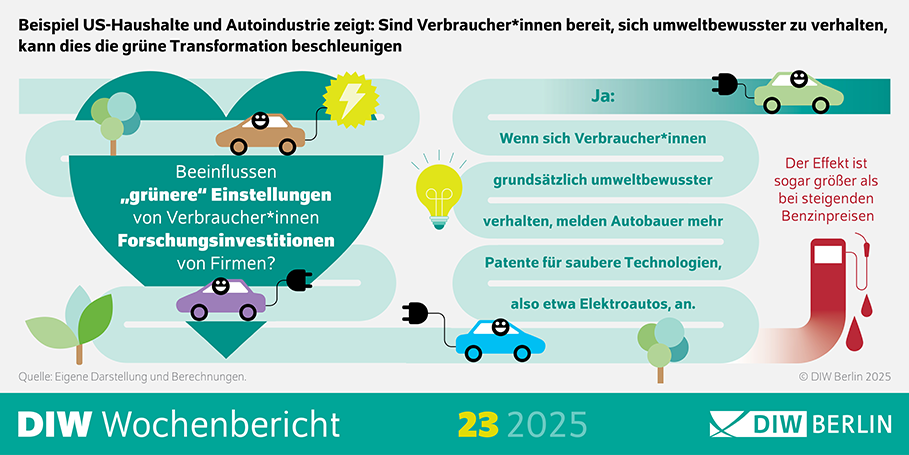2025-06-04
indicators

Environmentally conscious consumers are driving companies toward greener innovation, particularly in industries like automotive manufacturing. A study by the German Institute for Economic Research (DIW Berlin) reveals that when households develop stronger environmental and climate protection attitudes, companies respond by increasing investment in clean technologies such as electric, hybrid, and hydrogen-powered vehicles. The study highlights that these consumer-driven changes have a more sustained impact on innovation than external factors like rising petrol prices. The research, which examined data from U.S. households between 2006 and 2019, utilized a “green attitude index” derived from Google search trends along with patent application data from the U.S. Patent and Trademark Office. This approach allowed researchers to link shifts in consumer interest in environmental issues to the number of patents filed for clean automotive technologies. Findings indicate that when consumers show greater willingness to purchase environmentally friendly products, car manufacturers adjust their research and development strategies accordingly. Over time, knowledge and innovation in clean technologies increase significantly. In contrast, although rising petrol prices also encourage the development of cleaner technologies, their influence tends to be short-lived and less consistent. Sonja Dobkowitz, a research associate in the Macroeconomics Department at DIW Berlin, emphasized the importance of consumer behavior in driving sustainable innovation. “Green consumer preferences are a hitherto underestimated lever for greater climate and environmental protection,” she explained. According to Dobkowitz, companies are keenly aware of shifts in consumer sentiment and incorporate these preferences into their strategic planning and innovation investments. The study suggests that policymakers should leverage this connection by ensuring greater transparency about the environmental impact of products. Providing clearer information not only on production processes but also on the environmental footprint during the entire lifecycle of a product could further strengthen consumers’ ability to make informed choices. “Companies take consumer attitudes into account in their innovation decisions. This can have a big impact – policymakers should make greater use of this insight in environmental and climate protection measures,” Dobkowitz added. As global efforts to combat climate change intensify, the findings underline the powerful role that consumer behavior can play alongside regulatory measures. Encouraging environmentally responsible consumption through better information and transparency could thus be a critical element in promoting sustainable technological development.

